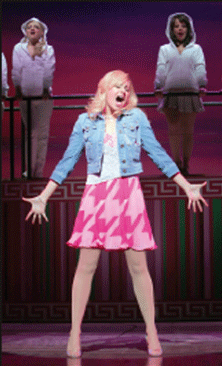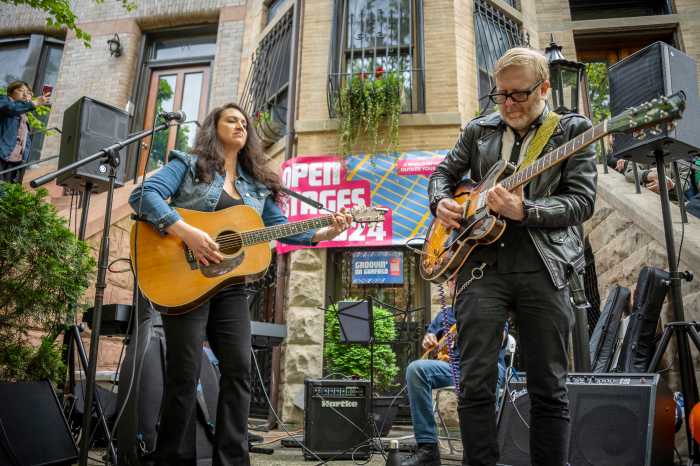By Scott Harrah
The 2001 movie “Legally Blonde” was a cerebral comedy that cemented Reese Witherspoon’s status as a box-office draw. The movie, a middlebrow farce about a spoiled blonde California sorority girl who gets accepted into Harvard Law School to pursue her preppy ex-boyfriend, was amusing, quick-witted, and had a strong underlying feminist theme that gave it an intellectual sense of appeal much like “Clueless” had a few years earlier. The Broadway musical adaptation that recently opened fairly follows the film’s storyline, but all hopes of “Legally Blonde” turning out to be as fun as the Hollywood original are lost in the musical’s second act.
No one ever expects stage versions of popular movies to be carbon copies of their big-screen counterparts. Sometimes Broadway adaptations of Hollywood movies are actually better than the original, but only if the plot lends itself to the musical-comedy genre and can be easily improved and fleshed out thematically with razzle-dazzle, show-stopping songs that are germane to the plot, as was the case with the John Waters classic “Hairspray.” In fact, “Hairspray’s” choreographer Jerry Mitchell debuts as a director here, so one would have thought he would have been able to work the same theatrical magic with “Legally Blonde.”
Leading lady Laura Bell Bundy, playing the inimitable Elle Woods (complete with a real Chihuahua in hand), has all of the character’s Valley Girl mannerisms down. Her comedic timing is great, and she has a fine voice as well. It would be unfair to compare Bundy to Witherspoon, but she does not convey the sense of a Barbie doll blossoming into a true scholar with the same ease that Witherspoon did on screen. What made “Legally Blonde” such a unique movie was the fact that it showed how even “girly girls” with a passion for pink outfits can outsmart the boys. Although the film played up Elle Woods’ hyper-femininity for laughs, there was a sharp arc to her character, and the transformation from bubble-brained airhead to Ivy League law-school valedictorian was definitely plausible, speaking volumes about how women still have to fight sexist expectations to prove themselves in a male-dominated work world.
Granted, much of the film’s original charm is intact here, including some of the dialogue that is literally lifted verbatim from the screenplay. There are all the characters from the movie, and most are done well. Richard H. Blake, as Elle’s ex Warner Huntington III, is serviceable, and real-life Miss America 1996 Kate Shindle is effective as his mousy, snobbish girlfriend Vivienne. The true standout of the show, however, is Orfeh as Paulette, the lovably tacky hairdresser who offers Elle advice on men, and is obsessed with a hunky UPS guy, Kyle (Andy Karl). Paulette has one of the show’s best songs, “Ireland,” about her dreams of life being as perfect and carefree as a misty morning on the Emerald Isle, complete with Irish step-dancing that lampoons “Riverdance” and the current Broadway stinker “The Pirate Queen.” Other bright moments include Elle’s sorority sisters acting as a Greek chorus throughout the show, and while this is initially cute, the joke quickly wears thin.
Although “Legally Blonde” is always entertaining, colorful and rarely has a dull moment, the crucial courtroom scene in act two is totally botched. For starters, the “outing” of a gay pool boy on the witness stand — a clever and subtle joke in the movie — is simply played for cheap laughs here and is borderline offensive. Most absurd of all, however, is the fact that the judge demands that the court change venues and finish up at the scene of the crime. Here, that scene is the bathroom in an aerobics guru’s home, and the judge presides over the court while sitting on the toilet. This, of course, was never in the movie, and seems completely unnecessary. Nothing in a farce ever resembles reality, but who ever heard of a jury delivering a verdict at a crime scene? While this probably will not matter to those simply seeking a fun night out at the theater — “Legally Blonde” is certainly a crowd-pleaser — diehard fans of the movie expecting an accurate adaptation of the classic comedy will be disappointed.































